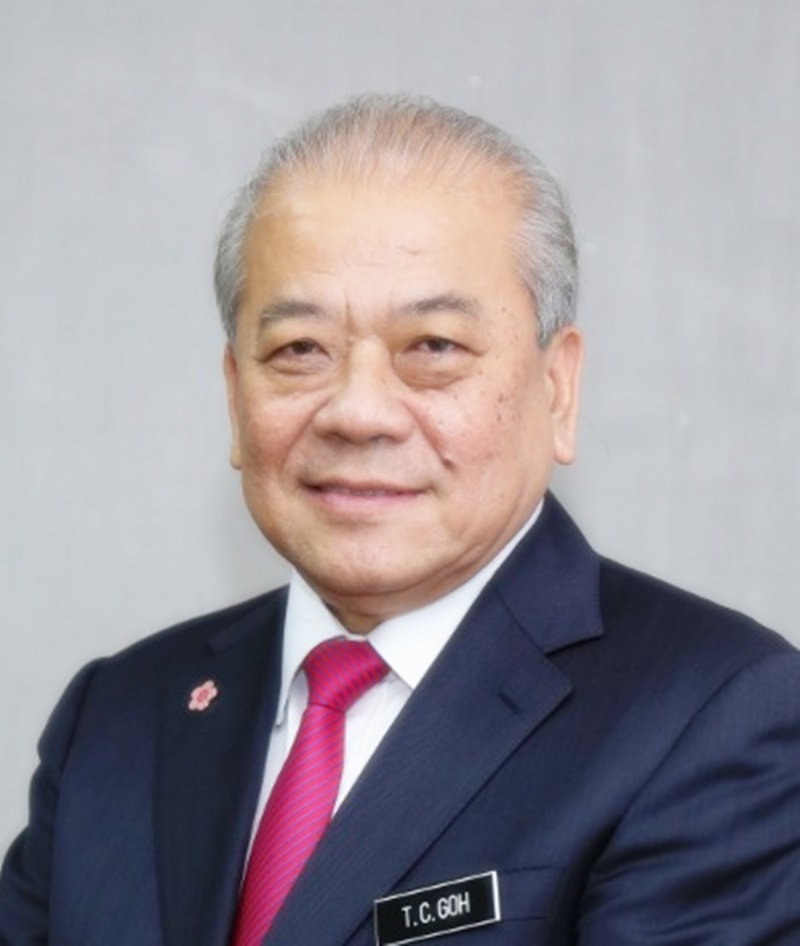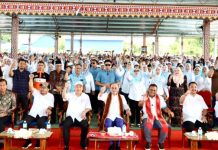KUALA LUMPUR: The Federation of Chinese Associations Malaysia (Huazong) has hoped that the 2022 Budget allocation for the Chinese community was more comprehensive, and not just confined to upgrading of the new villages.
Its President Tan Sri T.C Goh, while welcoming the government allocation of RM200 mil for the Chinese community, among them for the purpose of upgrading Chinese new villages, hoped the government could also pay due attention to other aspects of the Chinese community.
He contended that allocations for the Chinese community sector should also include such aspects like Chinese education, religion and culture, which were not listed in the 2022 Budget.
“We welcome the allocation of RM200 million for the Chinese community, which is higher than the previous year’s allocation of RM177 million. But, we hope the Ministry of Finance could clarify on the aspects of allocation for the purpose of upgrading Chinese new villages, as well as financing schemes for the small and medium enterprises (SMEs). This is in view of the extensiveness of its (the allocation) coverage and the fact that it might not be enough, if it were targeted at all the new villages in the country whose number exceeds 600 villages,” he pointed out.
Besides this, he was also baffled with the non allocation of development funds for Chinese independent schools in the country, in the 2022 Budget. He thus hoped the government could rectify this by providing ‘special allocation’ for Chinese independent schools through the Ministry of Finance (MoF), after this, like in the past three years.
He also hoped the government could provide allocations to the three Chinese community run colleges, namely the New Era University College, Han Chiang University College and Southern University College.
While welcoming the allocation of RM 120 million to 1,800 Chinese and vernacular schools, for repair and upgrading of infrastructures purposes, he also hoped necessary allocation can be provided to national-type Chinese secondary schools.
He recognised that the government raising of the statutory debt limit to 65% from 60% of gross domestic product (GDP) has allowed the government to present an expanded budget worth RM 332.1 billion, which is the biggest in the history of Malaysia thus far, with an operating expenditure of RM 233.5 billion and development expenditure at RM75.6bil, besides RM23 billion for Covid-19 Fund, with RM2 billion for contingency.
He went on to note that while the government’s operating expenditure for 2022 is slightly lower than 2021, nonetheless there’s still a huge imbalance when compared to the development expenditure, as in previous years. He thus opined that the government should strive to rectify such an imbalance between the two expenditures, so as not to adversely affect the nation’s economic recovery in various sectors, post pandemic.
Commenting on the 2022 Budget themed “Keluarga Malaysia, Makmur Sejahtera” presented by Finance Minister Tengku Datuk Seri Zafrul Tengku Abdul Aziz in Parliament on Friday, Goh acknowledged that the Covid-19 pandemic has inevitably compelled the government to repeatedly adjust its fiscal deficit forecast from 5.4% previously to 6.5% this year, and 6% for 2022. He opined that the government will have to strive harder in order to achieve its target of lowering the fiscal deficit to 4% of the GDP in the next few years.
He added that the government needs to better contain Covid-19 besides improving its existing economic policies to expedite economic recovery, if it aspires for the GDP to rebound from – 5.6% contraction in 2020 to expand 3% to 4% in 2021 and grow 5.5% to 6.5% in 2022.
Nonetheless, he acknowledged that the maiden national budget unveiled by Datuk Seri Ismail Sabri Yaakob as the Prime Minister of Malaysia, was indeed a well-thought-out, ‘people-friendly’ budget which focuses on a variety of crucial matters like fighting Covid-19, stimulating economic recovery, easing the people’s financial burden and suffering, especially those from the low-income group, children (orphans), students, youths, the elderly, poor families, the jobless, those in the gig economy, besides giving tax reliefs for individuals and businesses, the small and medium enterprises (SMEs) included.
He however opined that there were not many surprises in the Budget, adding that: “whether there’s any “Wow factors” in it is entirely one’s opinion.”.
He also welcomed and supported the government giving the lion’s share of the budget to the education and healthcare sectors, which reflected well on the government’s aspiration and determination to beef up these two sectors which are key to developments of the nation.
Goh who is also President of the Federation of Chinese Associations Sabah (FCAS) and the Federation of Sabah and Labuan Hokkien Associations (FSLHA) also welcomed and supported the government’s initiative of providing wage subsidy to the employer, as high as 20% of the worker’s salary, via Social Security Organisation (SOCSO), with conditions that those hired must be without a fixed job and salary must be above RM1,500; and 30% subsidy for hiring of the vulnerable and underprivileged like the disabled (OKU), the native, or ex convict, and salary must be above RM1,200.
While he believed such initiatives will help to lower unemployment rates in the country, he also hoped that the government could provide certain tax incentives for employers who participate in such programmes.
He also commended the government for extending exemption on car sales tax by another six months until 30 June, 2022, and the abolishment of the Real Property Gains Tax (RPGT) on properties disposed of in the sixth year or above, to stimulate property and automobile industries.
On the collection of individual and corporate taxes, he noted that although they remained unchanged, the government has nonetheless provided various tax reliefs and incentives, especially on individual tax, to help ease the taxpayers’ financial burden.
Besides this, he also welcomed the government’s initiative of providing a host of targeted assistance to the low-income and underprivileged groups, such as living allowance and special allowance for university students of poor or single-parent families to purchase laptop computer, and RM150 e-wallet credit for the youths under the eStart Programme, among others; and the reintroduction of discount of between 10% to 15% to encourage National Higher Education Fund Corporation (PTPTN) borrowers to pay back their loans.
He was also glad that the government incorporated some of the proposals made by Huazong in the Budget 2022, and he hoped the government could strive to ensure that the Budget is efficiently implemented to achieve its intended goals, besides enhancing its cooperation and support for the private sector to stimulate and accelerate economic recovery.-pr/BNN






